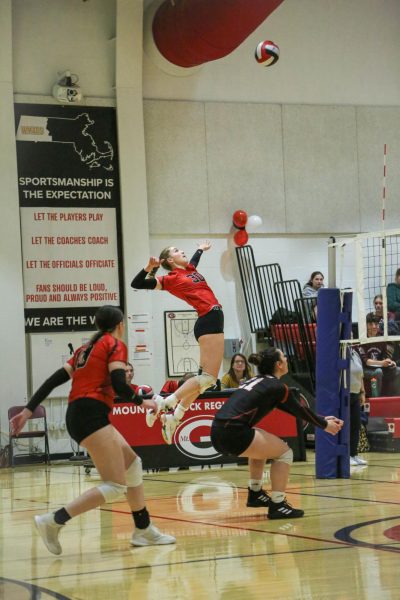An Interview with Superintendent Robert Putnam
The Echo sat down with new Superintendent Robert Putnam to discuss COVID-19, his teaching background, and what a typical day looks like for him.
Echo: What is your background in education?
Putnam: I have an undergraduate degree in history, a masters degree in instructional leadership, and a doctorate in curriculum studies. I was a career changer, so I didn’t get into teaching until I was in my mid-thirties. Prior to that I had been a professional musician, but in my mid-thirties I made the switch to education. I worked as a school teacher in kindergarten, first grade, and third grade. Then I became an elementary school music teacher. Then I became a curriculum director. After that I became an elementary principal, followed by an assistant superintendent of the central Berkshire Regional School District, followed by the superintendent of the central Berkshire Regional School District. Then I became the superintendent of the Adams Cheshire Regional School District, from which I retired on June, 30 of 2018.
E: What are you most looking forward to as the new superintendent?
P: I am looking forward to a safe reopening in schools, and a return to the high quality educational program that Mount Greylock Regional School District is well known for. So, those are my greatest aspirations: making sure that the reopening is safe, but also that it recaptures all the qualities that exist in the district under the restraints imposed on us by the COVID-19 pandemic.
E: How has COVID-19 affected the new school year?
P: I think that the reality of the restraints of social distancing, the creation of cohorts for the purpose of teaching and limiting potential exposure to COVID-19 [have been the major effects]. All of these make education something that will be fundamentally different than any educational program that any of us have ever experienced. I started school in the 1950’s and they really haven’t changed very much, but the changes required by the pandemic are profound differences. We’re going to be essentially evolving, and I believe that education is going to evolve as we move forward given these new circumstances. We had our first taste of remote learning last spring, and that iteration of remote learning was not preceded by planning or preparation. This time, we have a chance to do a better job with it.
E: So, have your past few months been dedicated to dealing with COVID-19?
P: That’s the best way to describe it. Planning for reopening has been the main focus, but not the only focus. It’s been an interesting focus because of the flood of information that has surrounded the reopening. Basically starting June 26, there have been continual updates released from the Department of Education regarding guidance on reopening. There have been essentially weekly updates on what to do about facilities, transportation, and special education. I’ve gotten all sorts of guidance on everything except how to remain sane.
E: Can you speak on the difficulties teachers and educators have been dealing with?
P: This entire process has been tremendously trying for teachers and administrators, just because of the changing information that we have. Basically, this change has been challenging for everyone. I’ve been dealing with the Dufour Bus Company and there’s only going to be one student to each bench on the bus, and not only that, they have to be spaced in correctly. All of our buses used to be 71 passenger buses; now we will have a maximum of 23 or 24 students on any one bus. I just use this as an illustration of the changes. We didn’t know that until August. All of this information was coming to us from the Department of Education, and there’s new guidance of COVID infection rates; it all becomes a non-stop. Also, the creation of schedules; we have a model in grades seven through twelve that has been very straightforward. We’re having a good bit of difficulty with our kindergarten through sixth grade models because of the requirements of having to provide a remote education for all families that want it, and then an in-person education for those that want that. I think that is our current challenge, which I would have much preferred to have met weeks ago, but that wasn’t the case. So, that creates a great deal of stress for parents, and teachers, and administrators, alike.
E: What drew you to this position?
P: I was asked to step in and help out by former colleagues. I was asked if I would be available to serve as an interim superintendent, and typically interim positions are not overly challenging. An interim position typically is one in which you are trying to maintain a school district in preparation for the person who is actually going to be the superintendent. Typically, an interim superintendent would not be designing the year’s education program. Although this does happen, I didn’t anticipate all the challenges.
E: What does a typical day look like for you now?
P: So, I live in South County and I’m on the road by 7:00AM to be at my office by 8:00AM. And then I typically find myself in non-stop- Zoom meetings, or all sorts of paperwork, or planning, for the entire day and often into the night.
E: What is the most valuable thing for students and faculty to know about you?
P: Whatever the challenge, I’ll try my best.



